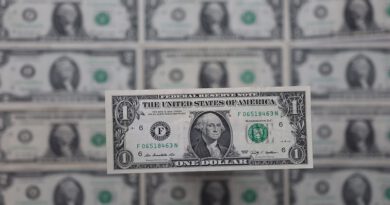Informal traders struggling with poor sales due to lockdown
Informal traders in Johannesburg say while they welcome being allowed to trade, they are struggling with very poor sales because of the lockdown. The City of Johannesburg has issued permits to 1 600 informal traders already registered on its database.
The move follows the announcement by Cooperative Governance Minister Nkosazana Dlamini-Zuma earlier this month, that informal traders who sell food, vegetables and fruits would be allowed to operate as essential services during the lockdown provided they have permits from their municipalities.
The area between Loveday and Eloff Streets in the Joburg CBD is usually bustling with vendors shouting prices of their goods and calling on those passing by to buy, but on Wednesday it was eerily quiet.
Pensioner Mama Stella sits next to her stock of vegetables, fruits and snacks staring into space while snorting snuff.
She says business has been slow since she returned to the streets last week.
“I used to make about R350 a day, depending on the available customers, but now I take home R50 or R80. There’s no money.”
She lives in a flat opposite her stall and is now worried about how she will pay the R2 500 monthly rental.
She fears that she might be evicted. However, for Matshepo Arison, who has been selling in the CBD for the past 14 years, being allowed to trade is better than sitting at home with her family and not getting any income.
“It is better than sitting at home and your children going hungry. At least I can make about R500 a day. Customers do come even though those in the townships are not able to come to town. But those who live around town do come and buy from us.”
Felix, who specialises in selling bananas, says business is bad.
“I bought four boxes of bananas. I did not sell a single one yesterday (Tuesday). They are going slowly because people don’t have money anymore. Our rent, our children, everybody are stuck. We are forced to be in the streets and there’s no one to buy. Government must make a plan.”
All three traders did not have any personal protective clothing. At least one of the traders, Felix managed to buy himself a sanitizer.
City of Johannesburg Spokesperson Nthatisi Modingoane says all 1 600 informal traders who have been granted permits to trade within the city must have protective clothing and adhere to COVID-19 regulations.
“Yes, they have been given specifications in terms of making sure that the one-metre radius in terms of social distancing is observed. There are issues around hygiene and cleanliness in their stalls. Issues of making sure that there are sanitizers and protective gear around there if they have to engage closely with customers. So, there are those regulations being monitored by our officers to make sure there’s compliance.”
He has warned those found operating without the necessary permits that they will be arrested and their goods confiscated as they are deemed to be violating COVID-19 regulations.
In the video below, some informal traders are trading without permits:
[embedded content]
He says they are not accepting new applications for now. Lulama Mali of the Joburg Informal Traders Platform says government needs to intervene and help informal traders who are struggling due to the lockdown.
“The president spoke openly on TV that the informal sector will also get something from the relief fund , nothing has come forth until today.”
The graphic below gives more information about the lockdown :
Source: SABC News (sabcnews.com)

